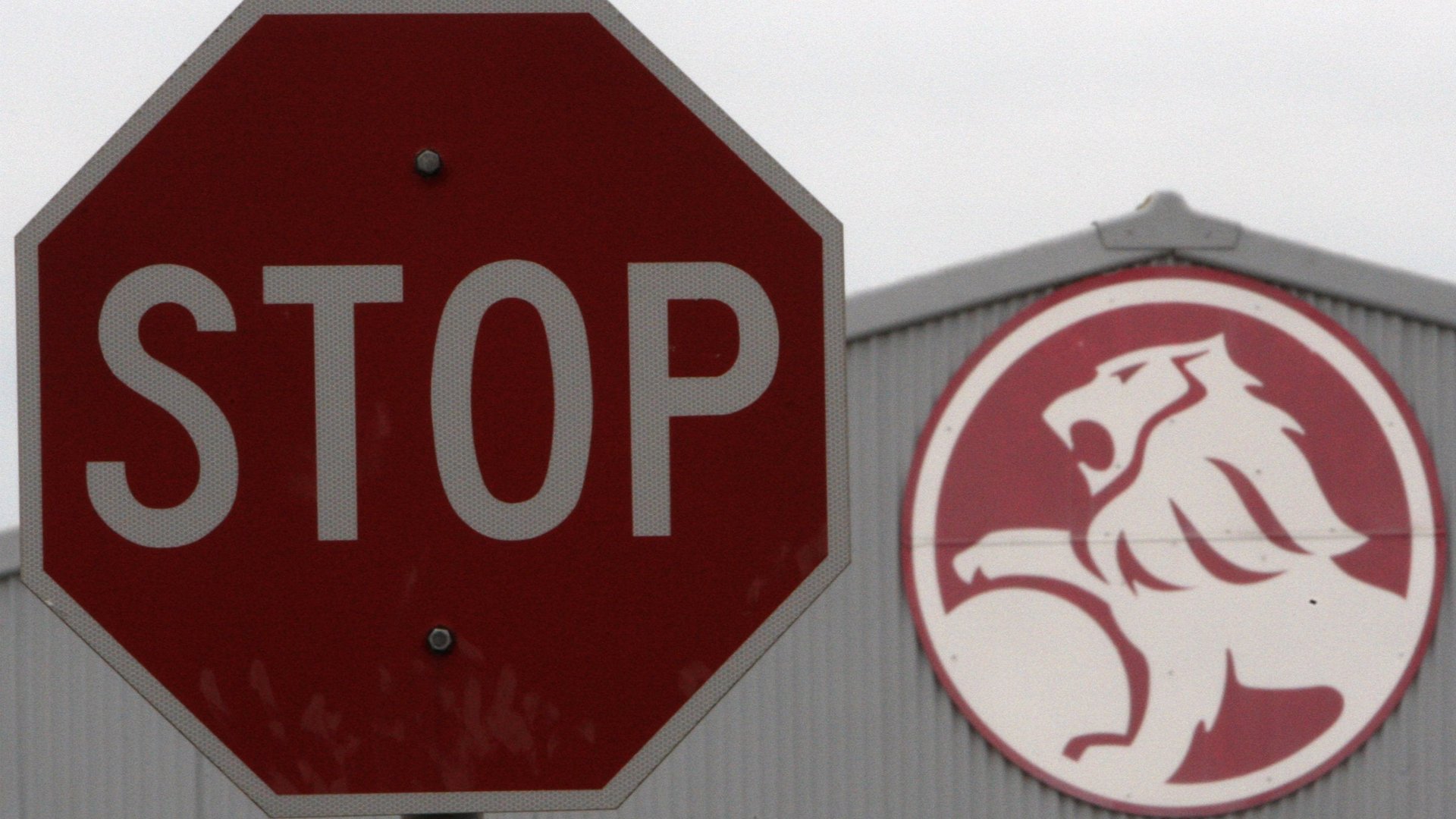Two days after its US bailout ended, GM might be about to trigger a shutdown of Australia’s entire car industry
General Motors has already had two momentous events this week: It appointed its first female CEO and no longer counts the US government as a shareholder. But the most significant story involving the company could be taking place 10,000 miles away from its Detroit headquarters, in southern Australia.


General Motors has already had two momentous events this week: It appointed its first female CEO and no longer counts the US government as a shareholder. But the most significant story involving the company could be taking place 10,000 miles away from its Detroit headquarters, in southern Australia.
GM’s Australian subsidiary, Holden, announced overnight that it would cease manufacturing in the country in 2017, after nearly seven decades of production there. The reason? A “perfect storm of negative influences” on the auto industry, Holden’s boss told workers, including a strong Australian dollar and relatively high production costs. The announcement came after a protracted game of brinkmanship between the automaker, successive political administrations in Australia, and unions.
The rise in Australia’s currency alone is making it 65% more expensive to produce vehicles there compared to just a decade earlier, Holden said. Pay is also likely to be a factor: Entry-level wages for a Holden worker who has completed an induction program work out to A$23.50 (US$21.50) an hour, according to analysis (paywall) by The Australian newspaper, which appears to be higher than comparable rates for GM workers in the US.
Another reason for the move was a decision by the recently elected conservative government to cut A$500 million in subsidies designed to entice Holden to keep producing cars in the country.
But Holden’s impending departure could have devastating knock-on effects. Already Toyota, the only other remaining carmaker in Australia (Mitsubishi left in 2008), has warned that it might depart the country because without GM the market might not be big enough to sustain its component suppliers.
Toyota is in the process of negotiating new wage agreements with workers, and unions have dismissed the threat as a stunt. But if the worst doomsday scenarios propagated by the opposition parties and unions are to be believed, a complete collapse of the Australian auto industry could lead to the loss of 40,000 jobs and suck A$21.5 billion out of the economy over 15 years (though a fact check of these claims found they were unverifiable).
So while debate around whether the US auto bailout was a good thing or not will no doubt continue to rage, Australia could yet become an example of what might have happened if the Obama administration hadn’t acted to save the carmakers.